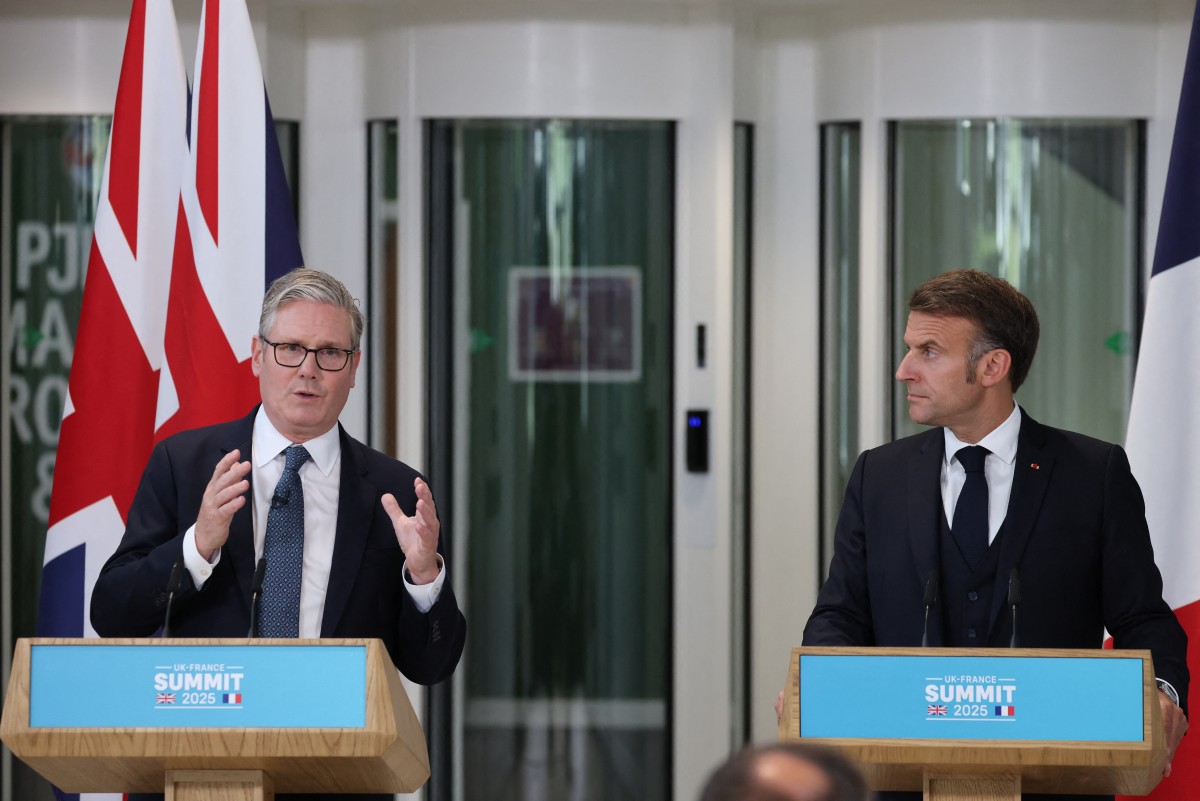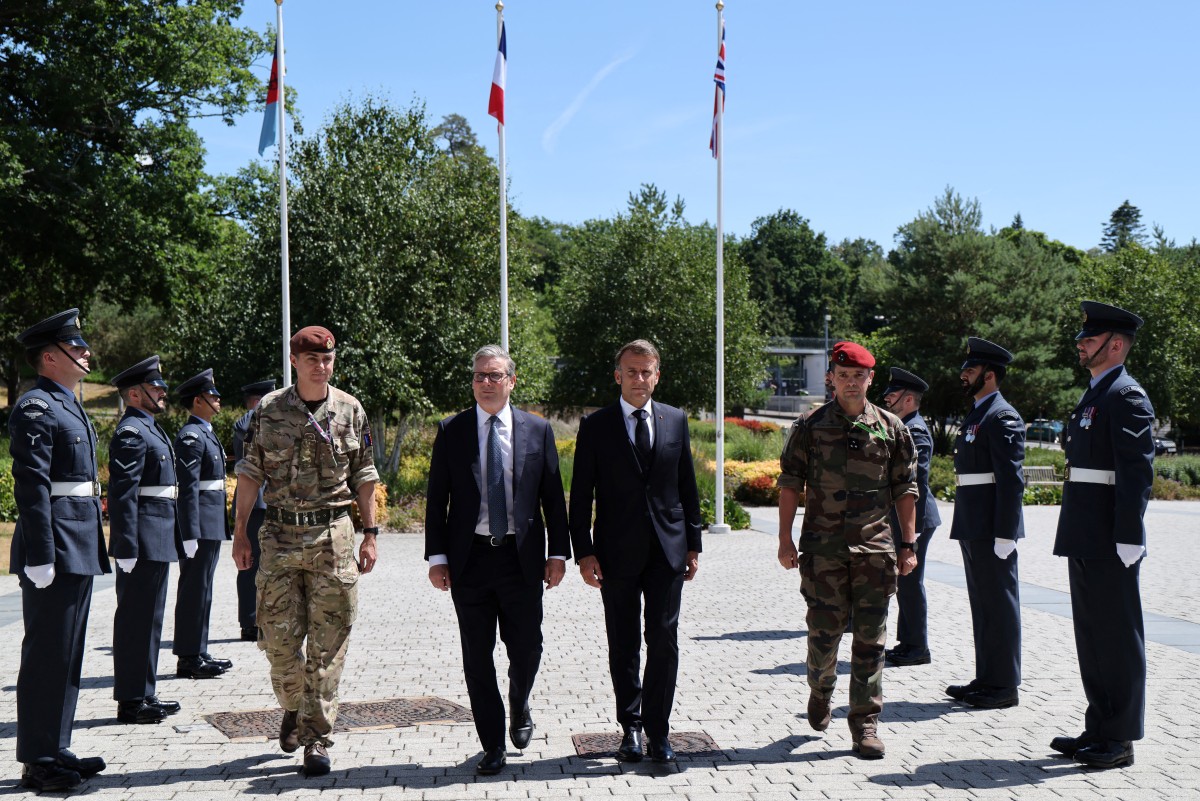
LONDON - British Prime Minister Keir Starmer said on Thursday that Britain and France have signed a new deal to allow the two countries to coordinate their nuclear deterrents for the first time.
During a joint press conference with French President Emmanuel Macron at a military base in Northwood, near London, Starmer said the two countries had signed the Northwood Declaration, a deal designed to show adversaries that any attack on either nation would result in a response from both nations.
For his part, Macron, who will conclude a three-day state visit to Britain later Thursday, highlighted the importance of defense and security cooperation between the two countries, noting that times have changed in Europe and the Britain-France partnership "must change accordingly."
Referring to the Russia-Ukraine conflict, Macron said Europe must be able to rely on the strategic collaboration between Britain and France, Europe's only two nuclear powers.
A statement by Downing Street underscored the "extreme threat to Europe" that would prompt a joint nuclear response. "Any adversary threatening the vital interests of Britain or France could be confronted by the strength of the nuclear forces of both nations," it said.
Meanwhile, Britain and France plan to order additional highly lethal Storm Shadow cruise missiles and step up replenishment of arms depots as part of a renewed defense agreement, according to the statement.
Following a Britain-France Summit at Downing Street and a "coalition of the willing" virtual meeting, which included Ukrainian President Volodymyr Zelensky, Starmer announced that a new coalition headquarters supporting Ukraine will be established in Paris.
On the issue of migration, the two leaders unveiled a new "one in, one out" scheme to reduce English Channel crossings.
ALSO READ: UK's Starmer, France's Macron to announce migration deal at summit
Under the scheme, migrants arriving in Britain via small boats will be "detained and returned to France in short order", Starmer said. In parallel, individuals who have not previously attempted to cross the Channel illegally will be allowed to enter Britain through a newly created route.

The route will be subject to strict security checks and limited to those meeting the eligibility criteria. Starmer described the plan as "groundbreaking" but didn't specify how many migrants would be returned.
Macron said he's "totally committed" to the pilot scheme, which will come into effect within weeks.
However, it remains unclear whether the scheme will serve as an effective deterrent. Despite joint funding and efforts, more than 20,000 people have crossed the Channel in small boats so far this year, marking a 50 percent increase compared to the same period in 2024.
Both Macron and Starmer face rising pressure at home from far-right and anti-immigration sentiment. Addressing the British parliament on Tuesday, Macron described the migration challenge as "a burden" shared by both countries.
Starmer also said the two countries "have gone further" to improve trade and investment, adding that both sides will strengthen collaboration on supercomputers, satellite connectivity, and artificial intelligence.
Macron hailed the development as a "reset" in bilateral ties, noting that trade volumes have topped pre-Brexit levels and the two countries are strengthening their partnerships in civilian nuclear power and cooperating in space exploration.
During his visit, Macron reiterated support for the two-state solution to solving the conflicts in Gaza, and called recognition of the State of Palestine the "only path to peace".
The visit marks the first state trip to Britain by a French president since 2008, and Macron is the first European Union head of state to visit since Brexit.
Observers said trust between the two sides still needs to be rebuilt after years of tension, particularly during the Brexit negotiations. Macron previously described Brexit as a product of "lies and false promises". Dialogue between the two nations had diminished following disputes on fishing rights and the Britain-Australia submarine deals.
READ MORE: Britain agrees trade and defense reset with EU
Sebastien Maillard, an expert at London-based think tank Chatham House, said that "the memory of these difficult times has not vanished" on either side. "Trust needs time to build," he added.


